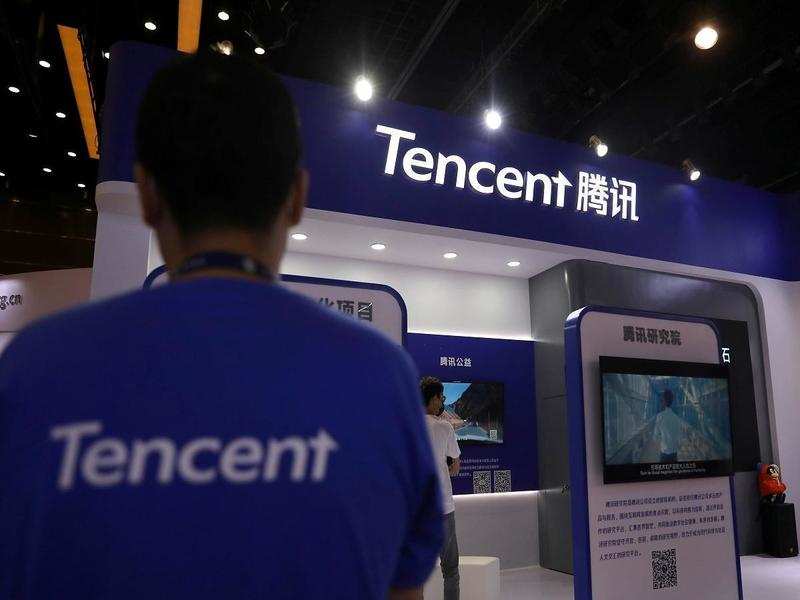

Chinese language gaming and social media firm Tencent can pay out a $16.4 billion dividend by distributing most of its JD.com stake, weakening its ties to the e-commerce agency and elevating questions on its plans for different holdings.
The transfer comes as Beijing leads a broad regulatory crackdown on know-how corporations, taking goal at their abroad development ambitions and home focus of market energy.
Tencent stated on Thursday it would switch HK$127.69 billion ($16.37 billion) value of its JD.com stake to shareholders, slashing its holding in China’s second-biggest e-commerce firm to 2.3% from round 17% now and dropping its spot as JD.com’s greatest shareholder to Walmart.
The proprietor of WeChat, which first invested in JD.com in 2014, stated it was the suitable time for the divestment, given the e-commerce agency had reached a stage the place it might probably self-finance its development.
Chinese language regulators have this yr blocked https://www.reuters.com/world/china/chinese-antitrust-regulator-blocks-tencents-video-games-merger-2021-07-10 Tencent’s proposed $5.3 billion merger of the nation’s high two videogame streaming websites, ordered it to finish unique music copyright agreements and located WeChat illegally transferred person knowledge.
The corporate is considered one of a handful of know-how giants that dominate China’s web house and which have traditionally prevented rivals’ hyperlinks and companies from being shared on their platforms.
“This appears to be a continuation of the idea of bringing down the walled gardens and rising competitors among the many tech giants by weakening partnerships, exclusivity and different preparations which weaken aggressive pressures,” Mio Kato, a LightStream Analysis analyst who publishes on Smartkarma stated of the JD.com stake switch.
“It may have implications for issues just like the funds market the place Tencent’s relationships with Pinduoduo and JD have helped it keep some competitiveness with Alipay,” he stated.
JD.com shares plunged 11.2% in early commerce in Hong Kong on Thursday, the largest every day proportion decline since its debut within the metropolis in June 2020, earlier than recovering partially to a 7% decline by 0450 GMT. Shares of Tencent, Asia’s most dear listed firm, rose 4%.
The businesses stated they might proceed to have a enterprise relationship, together with an ongoing strategic partnership settlement, although Tencent Government Director and President Martin Lau will step down from JD.com’s board instantly.
Eligible Tencent shareholders might be entitled to 1 share of JD.com for each 21 shares they maintain.
PORTFOLIO DIVESTMENTS?
The JD.com stake is a part of Tencent’s portfolio of listed investments valued at $185 billion as of Sept. 30, together with stakes in e-commerce firm Pinduoduo, meals supply agency Meituan, video platform Kuaishou, automaker Tesla and streaming service Spotify.
Alex Au, managing director at Hong Kong-based hedge fund supervisor Alphalex Capital Administration, stated the JD.com sale made each enterprise and political sense.
“There is likely to be different divestments on their method as Tencent heed the antitrust name whereas shareholders ask to personal these pursuits in minority stakes themselves,” he stated.
An individual with data of the matter instructed Reuters Tencent has no plans to exit its different investments. When requested about Pinduoduo and Meituan, the particular person stated they aren’t as well-developed as JD.com.
Tencent selected to distribute the shares as a dividend fairly than promote them available on the market in an try and keep away from a steep fall in JD.com’s share worth in addition to a excessive tax invoice, the particular person added.
Kenny Ng, an analyst at Everbright Solar Hung Kai, stated the choice was “undoubtedly unfavorable” for JD.com.
“Though Tencent’s discount of JD’s holdings could not have a lot affect on JD’s precise enterprise, when the shares are transferred from Tencent to Tencent’s shareholders, the possibilities of Tencent’s shareholders promoting JD’s shares as dividends will improve,” he stated.
Know-how investor Prosus, which is Tencent’s largest shareholder with a 29% stake and is managed by Naspers of South Africa, will obtain the largest portion of JD.com shares.
Walmart owns a 9.3% stake in JD.com, in line with the Chinese language firm. Funds processor Alipay is a part of Tencent rival Alibaba Group.
FbTwitterLinkedin






